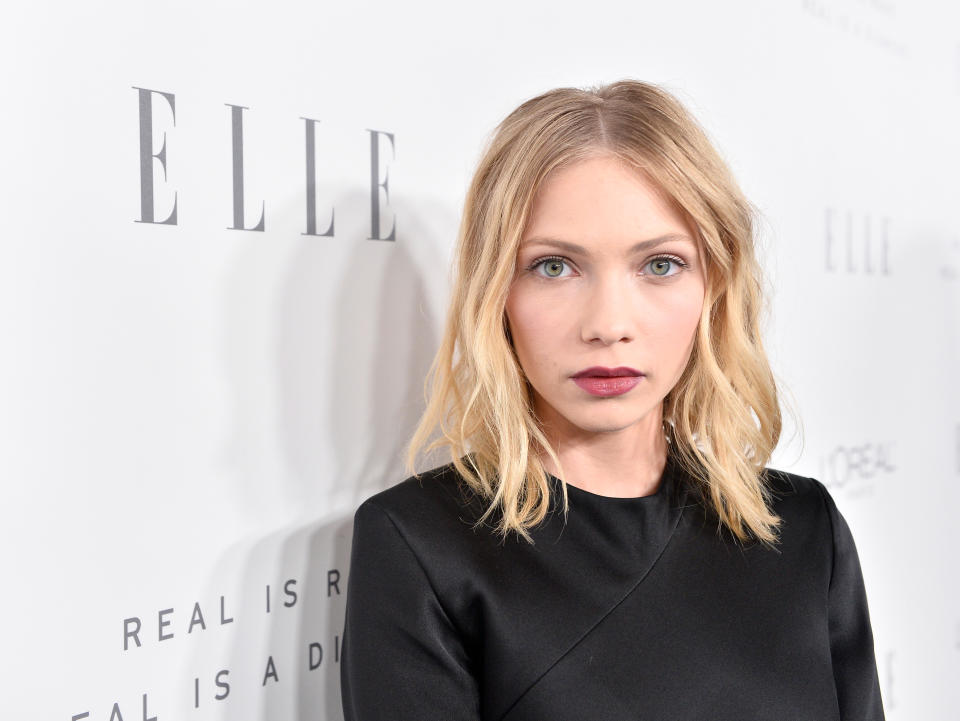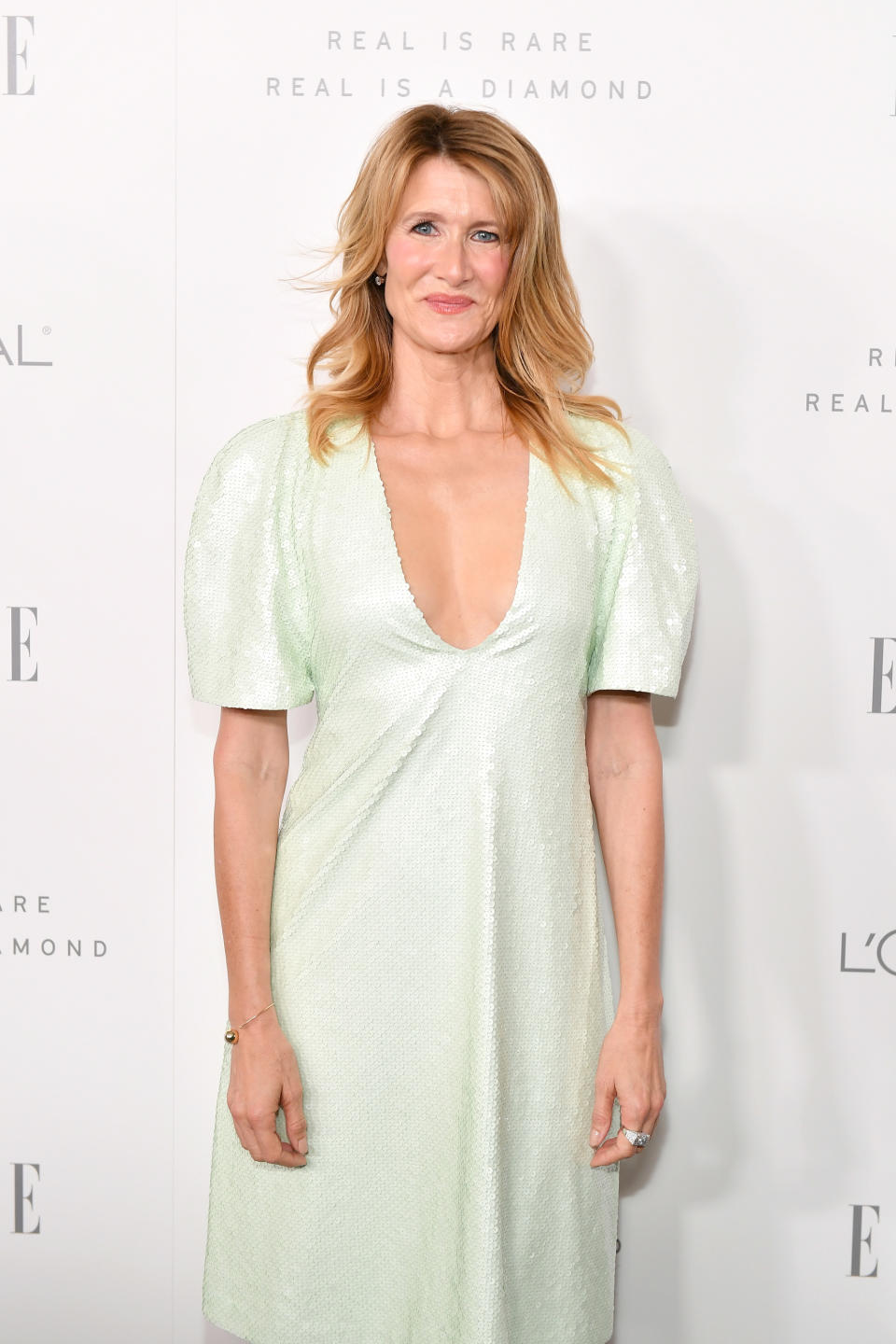Niecy Nash, Cicely Tyson, and other actresses recall being sexualized as early as age 5
Patricia Arquette recently spoke out about how she has experienced “sexual impropriety” since the early age of 4. And judging by the chatter at Monday’s annual Elle Women in Hollywood Awards — at which Reese Witherspoon and Jennifer Lawrence both shared Hollywood abuse stories — the Oscar winner is not alone.

On the red carpet, Niecy Nash told Yahoo Lifestyle that she felt men objectifying her as early as the age of 5. “I was really, really young,” she said, noting that she didn’t recognize a lot of her past #MeToo moments (Alyssa Milano encouraged women to share their stories using that hashtag) as harassment until later in life. “I think what happens, especially when you’re victimized at a young age, is you don’t know it’s inappropriate. You have to get older to be like, ‘Oh, wait a minute — that was out of order.’”

The Reno 911! and Scream Queens actress, who is currently starring in The Claws, admitted that early in her career she was “so green, wanted the part, and wanted to be liked” that she didn’t realize she had the power to say no to inappropriate comments. Eventually, she was pushed to that point when a male actor propositioned her and she boldly let him know that his actions were not OK. “I was able to look another actor in the eye and say, ‘Knock it off,’” she revealed. “I was able to find my voice in the moment and say, ‘We’re not doing that today,’ and put them in their place.”
Looking back, Nash would tell her young self that “the most powerful word in this industry is ‘no.’” She’d also advise her not to do anything that makes her feel uncomfortable and to “speak your truth. Even if your voice shakes.”
Zoe Lister-Jones told us she remembers being 9 and having her friends’ dads make uncomfortable comments about her. “It’s messed up. We are sexualized from a very young age,” she said, adding that she also vividly remembers being catcalled by an older teenage boy when she was 10.

The Life in Pieces star also touched on a #MeToo moment, where she took a stand against an abusive male acting coach. “I took it to the administration and was floored by the fact that he was so protected, because he was a founding member of this acting school,” she said. “I was told that female students in the past had faced the same thing with this professor, [but] when I brought it to the administration’s attention, they kind of acted as though it was a surprise even though this had been going on. It was very clear — kind of à la Harvey Weinstein.” Ultimately, Lister-Jones was able to change her grade after the professor failed her and she opted out of returning to his class the following semester. However, she’s still angry over the fact that he wasn’t fired over the incident. “The next year, another female student came up to me and told me that it was happening to her,” she revealed.
Lister-Jones praised the current dialogue and the fact that the Weinstein scandal has given her and many other women the confidence to openly speak out about past incidents, which is the first step in establishing a solution to the problem. “I think the big thing that this Harvey Weinstein scandal has done is it’s giving us permission as women to acknowledge those moments as real because so often we excuse them and say, ‘Oh, he’s a nice guy, he didn’t mean it,’ or, ‘He was just joking.’ I think it is time for us all to gather and support each other’s voices and to know that it’s OK to express our discomfort,” she added.
Having a young daughter has reminded Lake Bell of how early on in life a woman can become sexualized. “I think it does start as early as 3 and 4,” she said. “My daughter is turning 3, and I work really hard to talk to her and to have other people be careful with how they use their words, to not equate her worth on her beauty and her physical self. The good news is, she is smart as hell and vibrant and hilarious and has other qualities you can talk about, but it’s really hard. It’s like ingrained in me to say, ‘God, you’re so beautiful.’ And I want to tell her she’s beautiful, but it has to be compounded with the truth, which is she’s a good person. She’s kind, thoughtful. There are other words.”

The Boston Legal and Childrens Hospital actress joked that her daughter, Nova, will probably end up in therapy at one point, but admitted that she’s trying her best. “I remember understanding the concept of female versus male around 4,” she added. “There was just a sense of a vast difference, like: You are pretty, you put on dress, and charm to get things. And that funnels into some trouble later on.”
The mother of two also admitted that the #MeToo campaign made her go back in time and rethink some of her run-ins with males that were likely more inappropriate than she thought at the time. “This whole experience has pulled up some memories from the past of things that I have not thought about for so many years, and I think, ‘Oh, my God. Me too,’” she explained. “So that part of it is almost cathartic. But then you’re like, ‘Oh, no — that’s not OK,’ and now I’m a little bit angry. And if you had a daughter on top of that, you are just like, ‘Oh, my God.’ Her husband, Scott Campbell, has his own approach to protecting their daughter. “He’s ready to enroll her in jujitsu.”

Tavi Gevinson said that even her tomboy past didn’t keep her safe from being harassed as a teen. “I looked like a small boy till I was about 15, but somehow that doesn’t even change how easy and natural it seems for men to objectify a woman or a girl,” she said. Her big take-a-stand moment came later in her career when she did a commercial shoot with a director whom she not-so-affectionately refers to as “a giant pig.”
“He was making disgusting comments. I couldn’t do my job, and I yelled at him and I walked off. And then one of the glam people was like, ‘I’ve been working with him for decades, and no one’s ever done that,’” the actress and writer explained, noting that the people surrounding the Weinsteins of the world need to stop covering up the scandals.
“Ideally, [one would] stop working with those people once you know that they are like that — not once the world knows they are like that,” she added. “But people do whatever makes them the most money. People worked with Harvey Weinstein as long as he was making them money, and now he’s a liability.”
Laura Dern, who was honored later during the ceremony, called the evening a personal triumph. “When every woman and man … stands together to say we are determined to protect each other as human rights, inalienable rights, it’s a triumph,” she proclaimed. “And a triumph for all is certainly a triumph for one. It’s a very exciting night to try to figure out what’s next.”

The Big Little Lies actress, who admits to having personally been objectified by men in the industry throughout the years, added that her daughter, Jaya Harper, didn’t understand the concept of sexism until the recent presidential election. “She was in shock. And that was her wake-up call that there’s a deep difference in the acceptance of how a woman is allowed to be perceived or spoken about versus a man,” she added. “Whether it’s American politics or the movie business or hip-hop, men aren’t spoken about the same way women are. Let’s just face it.”
Inside the event shortly after, honoree (and Hollywood legend) Cicely Tyson took the podium to accept her award. A hush fell over the crowd as the 92-year-old icon chimed in on the current sexual harassment dialogue that’s been front and center since the New York Times first reported on the decades of sexual misconduct allegations against Weinstein.

“I never thought the day would come when I would be put in this position. I have mixed emotions about what I am going to say, but I feel very strongly about saying it,” said the Academy Award nominee, who then dived into a story about being a 9-year-old child sent out to sell shopping bags for her mother for 2 cents a bag. “The thing that stays in my memory as if it happened just a moment ago was the first man that I walked up to, to sell a shopping bag, said to me, ‘If you go into the hallway, I’ll give you $5.’ That was my first encounter or introduction of what I later came to know of sexual molestation.”
She continued, “It never left me. And so I know what it is, what it was, and what it will be if we don’t stop it — and we can.”
